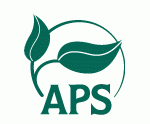

Once you've determined your topic - it's time to dig in and discover just what it's all about... In the sciences, a great place to start is with general subject-based reference encyclopedias and credible online resources. You will want to "get a feel" for how your topic is studied, what sub-disciplines (great source for keywords!) focus on it, and a Wikipedia-like comprehension of its nature.
Using the WSU Libraries Catalog, search for biological science reference resources to find entries and information on your topic. There are multiple ways to do this: subject searches, title searches and advanced keyword searching. Below is a list of suggested titles in the catalog you might want to utilize (and links are provided under the next tab):
Gale Encyclopedia of Science
Gale Encyclopedia of Medicine
McGraw-Hill Concise Encyclopedia of Science and Technology
Collins Dictionary of Biology
Encyclopedia of Bioethics
Dictionary of Environmental Science and Technology
Encyclopedia of the Human Genome
Encyclopedia of Molecular Biology
Dictionary of Microbiology and Molecular Biology
Grzimek's Animal Life Encyclopedia
Environmental Encyclopedia
Dictionary of Genetics by Robert C. King




Animal Diversity Web: Animal Diversity Web (ADW) is an online resource of animal natural history, distribution, classification, and conservation biology at the University of Michigan
Arkive: An interactive reference work covering animal species worldwide
Cells Alive: Contains animated and computer-enhanced images of living cells and organisms that are useful for education and medical research.
Cold Spring Harbor Laboratory: CSHL is a private, non-profit institution with research programs in cancer, neuroscience, plant biology, genomics, and bioinformatics and a broad educational mission. Links to a variety of research and education resources.
Encyclopedia of Life: An interactive encyclopedia of life-forms worldwide.
Environmental Protection Agency: Holds information on such current environmental research areas as: air science, climate change, ecosystems, health science, land and waste cleanup, pesticides, toxic substances, sustainable practices, and water science.
E-Print Network: E-Print Network a gateway to over 35,300 websites and databases worldwide, containing over 5.5 million e-prints in basic and applied sciences, primarily in physics but also including subject areas such as chemistry, biology and life sciences, materials science, nuclear sciences and engineering, energy research, computer and information technologies, and other disciplines of interest to DOE.
Evolution Resources: From the national Acadmies. Free access to books, reports, and additional resources on evolution education and research.
The Global Science Gateway: This website is a single launch point for searching multiple national and international sites in a variety of languages.
International Field Guides: A searchable database of field guides for plants, animals, and other objects in North America and around the world.
IPL2 Subject Browsing for Life Sciences: A compilation of the Internet Pubic Libary (IPL) and the Librarian's Internet Index (LII) websites, provides browsable, reliable subject-specific websites. here set to search for Internet sites focusing on Life Sciences.
National Agriculture Library: Information hub for the United States Department of Agriculture (USDA). Users can access articles, reports, bibliographies, and laws & regulations.
Plants Database: The PLANTS Database provides standardized information about the vascular plants, mosses, liverworts, hornworts, and lichens of the U.S. and its territories. Hosted by the USDA.
Red List of Threatened Species: Provides taxonomic, conservation status and distribution information on plants and animals that have been globally evaluated to determine the relative risk of extinction, the main purpose of the IUCN (International Union for Conservation of Nature) Red List being to catalogue and highlight those plants and animals that are facing a higher risk of global extinction.
Scitable Blogs: By Nature Publishing Group. Focuses on cell biology, including the topics of evolution, gene expression, and the rich complexity of cellular processes shared by living organisms. Scitable also offers resources for the student scientist, with advice about effective science communication and career paths.
Tree of Life: The Tree of Life Web Project (ToL): is a collaborative effort of biologists and nature enthusiasts, providing information about biodiversity, the characteristics of different groups of organisms, and their evolutionary history (phylogeny)
Each database you search will provide you with help sections, tools and tips for searching their system most effectively. Some basic things to remember when using computer systems for human use are the following:
Biological Sciences Databases at WSU Libraries (links science-specific databases available to you through WSU)

A key element of developing research is following references and citations found in resources that are useful to you. Another is examining articles surrounding an article or review you've found particularly informative. Academic journals often run themed issues, or specialize in particular aspects of their field or discipline. Browsing issues or searching for related articles will often help you find alternate perspectives, arguments and affiliated research to the topic you are developing. WSU Libraries provides access to thousands of scholarly scientific journals (both physically and electronically) that you can look through and search for here:
Electronic Journals by Subject



